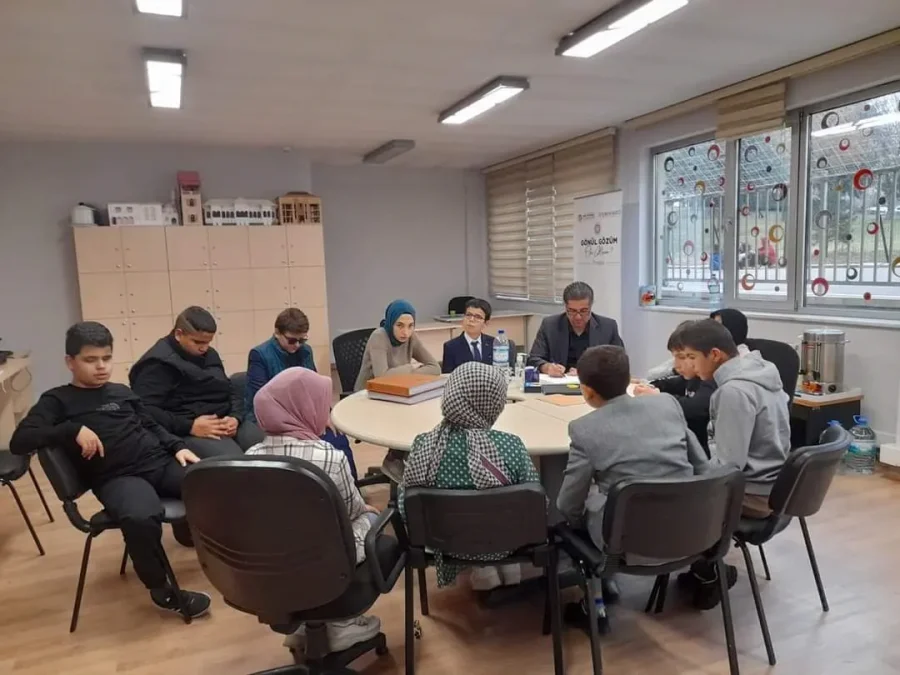Interview By Shabana Ayaz
We have not forgotten and will not forget when the women of Pakistan sent their jewels to help the Ottoman Caliphate. Mehmet Fateh Serenli. Love for Pakistan is in our genetics. Mehmet Fateh Serenli.
Mehmet Fatih Serenli is the head of Önder Ankara Imam Khatibs Association in Ankara, Türkiye. He is a very compassionate person.
Mehmet Fatih Serenli, BA Political Science, MA Islamic Law, MSc Economic History, President of Imam Khatib Schools Ankara Association, holds advisory and administrative positions in several universities and non-governmental organizations, including Ibn Khaldoun University, Ostim Technical University, Foundation for History of Islamic Science and Technology, Al-Quds Forum, etc. had worked as the Director of Training and Technical Cooperation at the Statistical, Economic, and Social Research and Training Center (SESRIC) of the OIC for 10 years.

I had an exclusive interview with Mehmet Fatih Serenli to understand the history and system of Imam Khatib Schools in Türkiye. His love for Pakistan is not hidden from anyone. Because of this love, he took time out of his busy schedule for the interview. I extracted and answered all the questions in detail.
In conversation with him, I learned the following history of Türkiye, that after the end of the Ottoman State, Türkiye was declared a republic through a constitutional amendment on October 29, 1923, through which a number of revolutionary acts had been introduced. Accordingly, the veil was banned, a Western-style constitutional and parliamentary government was established, the powers of the ulama were abolished, and many traditional institutions were completely abolished. It was adopted, the people were reminded that the source of supreme power is the people, nationalism was raised, the religious endowments were abolished, and Turkey was declared a secular state in the 1928 constitutional change. It is no longer the case that, with the passage of time, the aversion to religion increased.
In 1932, the Turkish government decided that the call to prayer would be given in Turkish instead of Arabic. In the same way madrasahs and taqias (sufic centres) were banned, there was a strong struggle to remove Arabic and Persian words from the Turkish language. The Latin alphabet was adopted for the Turkish language, and an attempt was made to inculcate this ideology in the young generation.
Türkiye is not a warrior nation, but a nation that teaches civilization to the world. Efforts were made to separate the Turks from Islam and to solidify the nationalism in their minds.

These were the actions that made every member of Turkish society suffer from anxiety and trouble, and the Turkish Muslims did not let their relationship with Islam break despite all these policies and reforms.
Despite the secular reforms, the Turkish people continued to strengthen their relationship with Islam. The Imam Khatib Schools played the most important role in eliminating secular influences.
The current president of Türkiye, Recep Tayyip Erdoğan, and the majority of government officials have graduated from Imam Khatib Schools during recent years.
President Recep Tayyip Erdoğan completed his education under Imam Khatib in 1973. He memorized the Qur’an with memorization, then got his bachelor degree in Economics and Administrative Science from İstanbul University, and he entered politics and brought Turkey to the heights of success.
Currently, there are more than twenty thousand mosques in Türkiye that are running under the auspices of the Ministry of Religious Affairs, and about sixty thousand imams and preachers have graduated from the theology faculty of the same schools and universities. Preference is given to degree holders from the Faculty of Theology.
According to research, there are currently 4.300 imam-khatib schools in Turkey out of 31.000, in which 1,5 million children are studying.
The children of the majority of Pakistanis living in Turkey are studying in these schools and are highly influenced by their teaching style and curricular activities because these schools contain not only religious but also modern worldly sciences.
Children are given free education, and modern courses are conducted. After passing the entrance exam (twelfth), students who graduate from these schools get admission easily to universities in Turkey and other countries.
I asked Mehmet Fatih Serenli, when and how did Imam Khatib Schools come into existence despite the suppress on Islamic rituals?
Mehmet Fatih Serenli revealed the history of madrassa schools and said that The first centres of Imam Khatib High Schools were Medresetü’l-Vaizin, opened in 1912 to train preachers in the late Ottoman Empire, and Medresetü’l-Eimme ve’l-Huteba, opened in 1913 to train imams and preachers. These two madrasahs were united in 1919 under the name of Medresetü’l-Irşad.
Two years later, on May 8, 1921, the Madrasa Ilmiya Nizam, i.e., the “Law of the Madrasahs of Science”, came into effect, setting the curriculum of the schools, which can be considered the first model of Imam Khatib.










